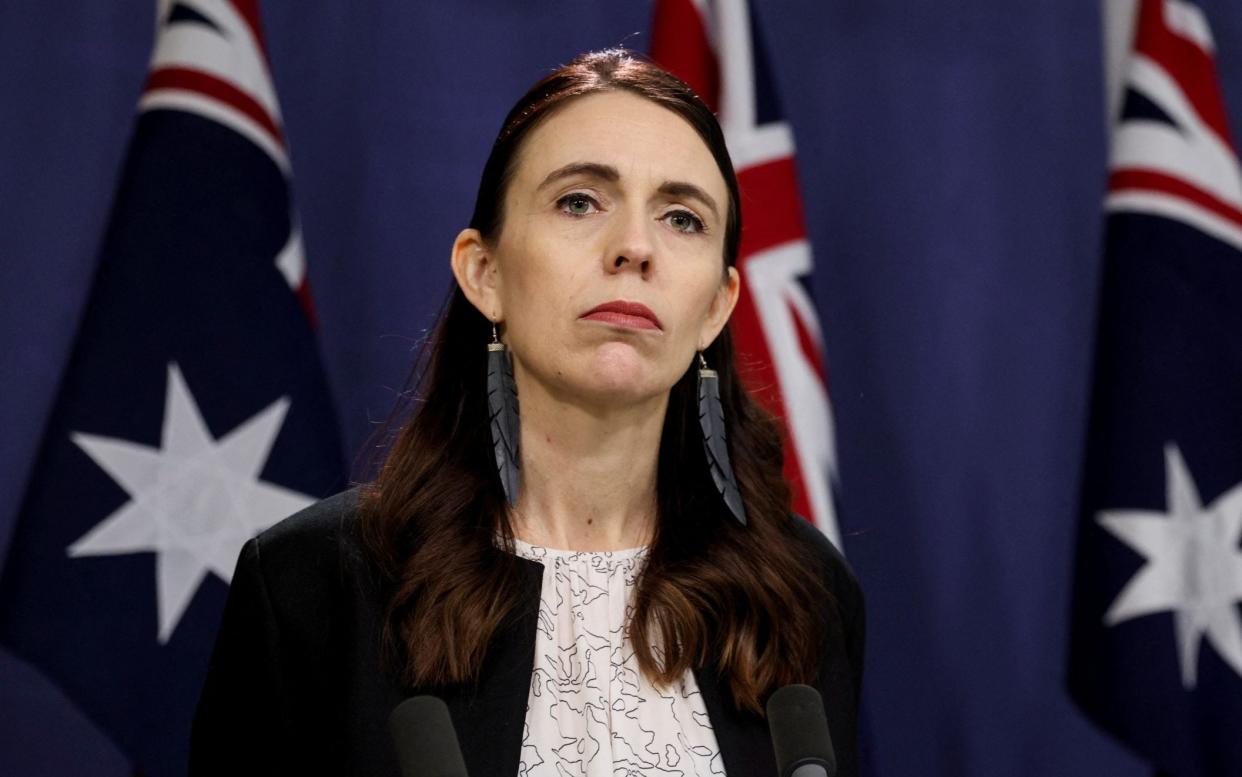Jacinda Ardern’s popularity plunges to lowest level as crime wave grips New Zealand

Jacinda Ardern’s popularity has plunged to the lowest level since she entered government as New Zealanders grow increasingly concerned about crime.
Tensions soared last week with the murder of a worker in a convenience store who was stabbed to death in a robbery.
Afterwards, the prime minister was criticised for making a visit to the remote Chatham Islands rather than visiting the victim’s grieving family.
New Zealand's media, which had been largely supportive of Ms Ardern during her first few years in office, now has the prime minister firmly in its sights - with the nation’s number one talk show host branding last week as “the government’s worst”.
‘Avalanche of bad news’
Broadcaster Mike Hosking said the government was facing “an avalanche of bad news, upset, anger, protest and disbelief from one end of the country to another – and I haven’t even got to the recession yet”.
Some 29 per cent of poll respondents said Ms Ardern was their preferred prime minister, a one per cent drop.
Support for the Labour Party, which Ms Ardern leads, has also dropped one per cent in the polls to 33 per cent.
It is the prime minister’s lowest ranking since she became Labour leader in 2017.
The 1 News-Kantar poll reflects growing disillusionment among the electorate with New Zealand’s Labour government, which has been plagued by the rising cost of living and an escalating crime rate.
On Monday, Ms Ardern admitted it had been a bruising few weeks.
“There is no question that right now we are as a country going through some very particular issues that rightly and understandably are of interest to voters,” she said.
The latest survey found that the centre-Right National Party and the Act Party had both increased their leads, placing them in a strong position to form a coalition government at the general election, which is expected to be held in the next 12 months.
The National Party was up one per cent to 38 per cent, while Act was up two points to 11 per cent.
Christopher Luxon, National Party leader, also reduced the gap as preferred prime minister - with Ms Ardern attracting 29 per cent support compared with Mr Luxon’s 23 per cent.
‘Going in the wrong direction’
Mr Luxon claimed the poll indicated that New Zealanders felt the country was “going in the wrong direction”.
Some of the dissatisfaction with Labour stems from the government’s handling of the pandemic and the draconian measures it imposed to contain Covid-19.
A wide-ranging inquiry into New Zealand’s strategy will be launched early next year to see how it might better prepare for future pandemics.
Among the issues it will investigate will be the government’s strict lockdowns and border quarantine restrictions, which effectively isolated New Zealand from the rest of the world.

 Yahoo Movies
Yahoo Movies 
